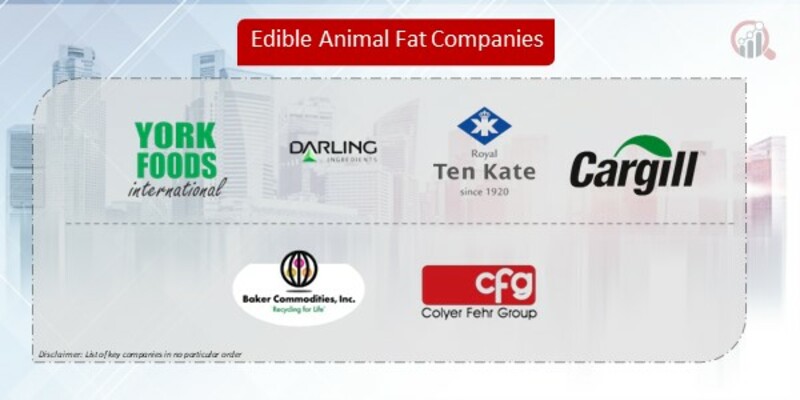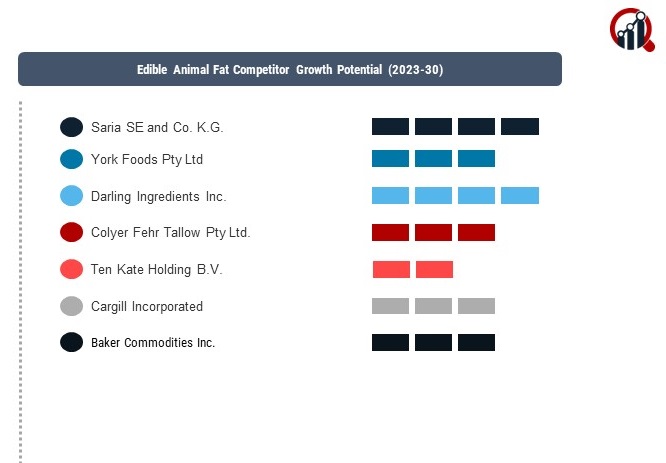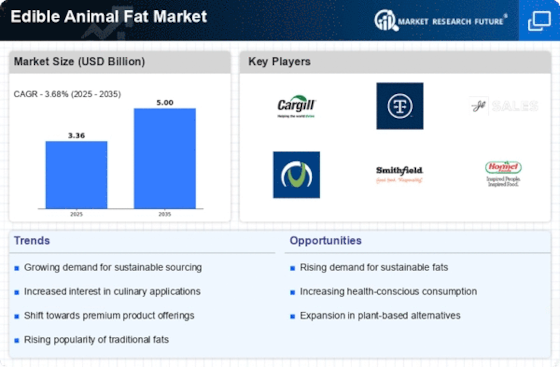Top Industry Leaders in the Edible Animal Fat Market
The competitive landscape of the edible animal fat market is characterized by a mix of established players, strategic alliances, and emerging companies vying for market share. Key players in this sector include multinational corporations and regional players, each employing diverse strategies to maintain and expand their presence in the market.
Key Players:
- Saria SE and Co. K.G. (Germany)
- York Foods Pty Ltd (Australia)
- Darling Ingredients Inc. (United States)
- Colyer Fehr Tallow Pty Ltd. (Australia)
- Ten Kate Holding B.V. (Netherlands)
- Cargill Incorporated (United States)
- Baker Commodities Inc.
Strategies Adopted:
The strategies adopted by these key players revolve around innovation, market expansion, and sustainability:

Factors for Market Share Analysis:
Several factors contribute to the analysis of market share within the edible animal fat sector:
New and Emerging Companies:
In addition to established players, the edible animal fat market is witnessing the emergence of new companies. These entrants often focus on niche markets, specialty products, or disruptive technologies. While their market share may be comparatively small, their innovative approaches can influence the overall dynamics of the industry.
Industry News and Current Company Investment Trends:
Recent industry news and investment trends indicate a heightened focus on sustainability, technology, and market expansion:

Overall Competitive Scenario:
The overall competitive scenario in the edible animal fat market remains dynamic, driven by a combination of traditional market leaders and newer entrants. The emphasis on sustainability, innovation, and global expansion underscores the industry's response to changing consumer demands and regulatory landscapes.
Recent Developments in 2023:
Darling Ingredients: By purchasing Bunge's European and South American fats and oils division, they increased their global presence.
worked in collaboration with Impossible Foods to create a novel plant-based fat that functions similarly to animal fat.
invested in the study and creation of sustainable techniques for producing fat.
Bunge: Concentrated on increasing the fats and oils division's operating effectiveness and cutting costs.
introduced new lines of blended fat products for use in particular culinary applications.
heightened attention to the market for sustainable diesel fuel made from animal fats.
Cargill: Introduced new fat blends for frying and baking, increasing their market share in the foodservice sector.
made large expenditures in the development of renewable energy from animal fats.
teamed together with academic institutions to create innovative methods for removing beneficial elements from animal fats.











